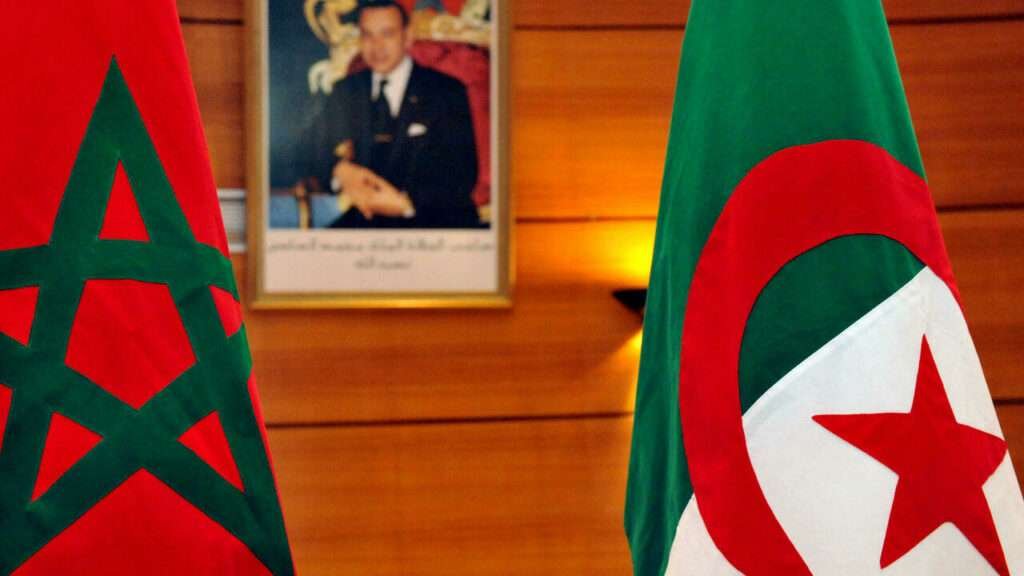Algeria severed diplomatic ties with Morocco on August 24, 2021, citing Morocco’s support for the Kabyle separatist movement and its recognition of Israel as the two main causes. Follow the real story behind the diplomatic rift that occurred between two of North Africa’s most major countries in this article what caused Algeria and Morocco to cut ties?
Due to their shared geostrategic and geoeconomic interests, Algeria and Morocco are embroiled in a continuous weapons race, territory disputes, ideological disagreements, and old rifts. The two countries have invested tens of billions of dollars in bolstering their military power over the years to ensure their dominance in the area. They have been forced to avoid true development—human development—as a result.
According to the 2022 HDI, Algeria ranks 91st and Morocco ranks 123rd out of 191 countries despite being rich in minerals and hydrocarbon resources. Thus, it can be said that the conflict of outmatching the opponent has only led the two into self-destruction.
Historical Roots
It is important to look back at the reasons of the conflict in order to comprehend the current diplomatic deadlock between the two countries. Algeria was a French colony, while Morocco was a traditional monarchy. As a result of the colonialism, Morocco launched a rebellious war on Algeria, and in retaliation, France occupied and annexed two Moroccan regions.
They weren’t initially marked off because they were arid areas of land, but after the discovery of valuable minerals and metals, Algeria annexed them. In fact, Morocco was given a combined administration to manage these riches along with the colony, but the Moroccan authorities rejected the proposal as Algerian independence movements grew.
Soon after Algeria gained its independence, its new government refrained from giving back the territory and so maintained the status quo of the annexed land. This led to a war between the two called the Sand War, but to this day, the area remains disputed.
Ideological Differences
Additionally, during the Cold War, Algeria and Morocco allied with opposing nations, which also planted the seed for the current fault line. Morocco’s monarchy had a stronger affinity with the West, particularly the UK. However, after recently gaining its independence from colonial domination, Algeria began to exhibit stronger tendencies toward nationalism and socialism, which drew it closer to the USSR.
In 1975, Spain relinquished authority over Western Sahara, and the region was offered to Morocco against the wishes of the Saharawi locals. This added to the already existing hostilities between the two. Western Sahara is crucial from a geostrategic and economic standpoint, and if Algeria had maintained control over it, it may have been able to by-pass the strait of Gibraltar which is under Morocco’s control, and instead have direct access to the Atlantic Ocean from Western Sahara.
Algeria’s trade would have increased and its reliance on the Strait of Gibraltar would have decreased if it had access to the ocean. As a result, Algeria began to militarily back the Polisario movement in Western Sahara, which was in opposition to the Moroccan administration. In the end, this resulted in proxy conflicts between the two nations. Although a ceasefire has been established and Morocco has controlled 85% of Western Sahara since 1991, the region is still under dispute.
Cutting Ties
A civil war against an Islamist organisation also broke out in Algeria in the 1990s, which Algeria alleged was aided by Morocco. The borders between the two countries have been blocked since the civil war began. Although numerous attempts have been made to reach a settlement and engage in negotiations, nothing appears to have been successful, and enmity between the two parties persists.
The fundamental objective of Algeria and Morocco is to strengthen their military power in order to preserve their dominance over the region. In this way, the two have been forced into the weapons race’s vicious cycle. The leadership have neglected the basic infrastructure and needs of the people as a result of the military’s significant expenditure.
When US President Donald Trump recognized Morocco’s sovereignty over the Western Sahara region, Morocco, in return, normalized its relations with Israel. Since Algeria was a staunch supporter of the Palestinian cause, the normalisation agreement reignited tensions between Morocco and the separatist movements in Western Sahara. Moreover, the incident once again polarized the region as the flourishing US-Morocco ties forced Algeria to improve its ties with Russia.
The Algerian government has broken its domestic pledges in light of the long-standing conflict and the present armaments race, which has sparked violent protests across the country. The Kabyle region in northwest Algeria is in the forefront of a successionist movement, which made the situation worse.
Added to it, A wildfire that broke out in Algeria during a heat wave in August 2021 is thought to have been deliberately started by the Kabyle separatist group. With Algeria and Morocco severing off their diplomatic connections, this episode put the final nail in the coffin of their alliance. Even so, Algeria restricted Moroccan aircraft’s use of its airspace. Additionally, it turned off the gas supply from the Maghreb-Europe pipeline that was used to produce one-tenth of the electricity in Morocco.
The Moroccan government’s recognition of Israel and Israel’s and Morocco’s support for the Kabyle separatist organisation in Algeria were the two grounds given by the Algerian envoy for the breakup of diplomatic relations.
Conclusively, Algeria and Morocco’s conflict has developed into a struggle for geopolitical and geostrategic goals, which are considered a way to achieve regional hegemony. According to the liberal school of thought, however, if the two boost commerce, cooperation, and communication, they will be able to break free from the arms race’s vicious cycle and use their resources for the benefit of their respective countries. But as Thucydides noted, it was Athens’ ascent that rendered Sparta uneasy and compelled conflict. Furthermore, this position has trapped Algeria and Morocco.
